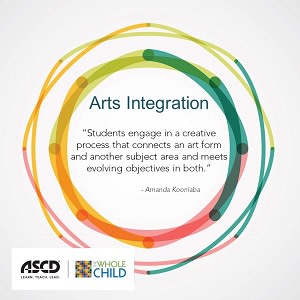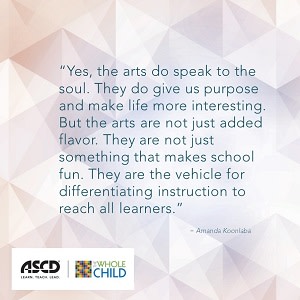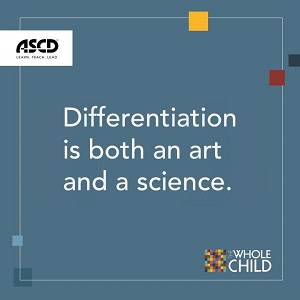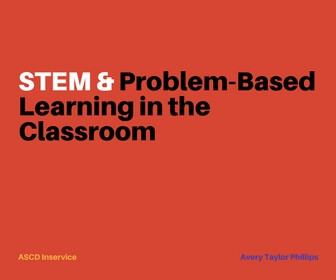It’s important to reflect on three foundational literacy concepts and questions when developing students’ skills in reading, writing and thinking.
Reading is not a subject- it’s a behavior.
We cannot rely solely on “reading” teachers to help students tackle difficult or unfamiliar text in order to gain necessary information. Every subject taught requires the skill of reading; therefore, every teacher is a reading teacher. We must help our colleagues gain proficiency in teaching reading strategies so students can become proficient readers in all subject areas.
Reading is more than fluency- it’s comprehension and application.
Its important to help students learn to read through skills and strategies instead of memorizing words. A strong foundation in phonemic awareness and comprehension strategies stick with students well beyond their elementary years and have a high impact on student academic success in the long term.
As an adult, I use best reading practices taught to me by my teachers- write in the margins of books, highlight unfamiliar vocabulary to look it up, and underline key ideas that make me pause to think or summarize a point perfectly. I tried out lots of reading strategies to aid in my reading comprehension and now I use a handful that are my tried and true strategies to be a successful educated individual.
We must also teach children multiple strategies to be successful until they find a handful that they can rely on from childhood through adulthood, like chunking text, jotting notes while reading, reading a text multiple times to gain all of the meaning, etc.
Reading is not random- it’s a daily occurrence.
Becoming a strong reader requires exercising your reading muscle, your mind, on a consistent basis. Life-long learning means as a reader you seek out new information, compile and organize it in your brain, and use it to make informed decisions in your life.
We have the opportunity to help students fall in love with reading by showing them how to approach reading through strategy that takes out frustration and anxiety and replaces it with success and confidence.
Create a class list of reading strategies students are using as a reference for each other and grow in the learning habit together! Don’t forget to find appropriate yet rigorous texts and incorporate subject areas and disciplines so reading becomes a way of life for our learners, not just a chunk of time in the daily schedule.
You might still be wondering:
1) How can I help students that struggle with reading draw meaning from a text?
Reading can be a complex process because it involves numerous mini skills working together in unison. Struggling readers are capable of becoming strong readers, but there might be a gap in their skill acquisition- a breakdown in one of the mini skills. Teachers work hard to analyze students’ reading behaviors to determine exactly where the breakdown occurs, reteach the necessary skill, and provide additional opportunities to practice. Then, many struggling readers become successful at a rapid rate because their reading skill set is now whole.
Diagnosing a student’s reading skill deficiency is challenging because students have unique circumstances. Some students have partial skills mixed with misconceptions leaving their skill meter at less than 100%. Many reading programs provide diagnostic tools, ranging from decoding to comprehension skills, and some even offer resources to design instructional learning opportunities to strengthen those specific reading skills.
Strategies to help students break down a complex text into more digestible, easier to understand pieces are:
- Cite textual evidence – pose questions for students to dig deeper into the text to find “right there” answers. This hunt will help calm reading anxiety as students seek information. Then pose questions where readers have to interpret the author’s words instead of locating exact phrasing. This higher- level skill encourages students to comprehend the text in addition to citing evidence.
- Evaluate arguments- use multiple text sources reporting on the same topic so students can evaluate authors’ differing opinions, collect evidence and decide how sound each argument is in support of a theory or idea.
- Synthesize information – This higher order skill should be included in all reading assignments and discussions. Students need to read, make sense of what they read, compile and categorize information for a particular purpose and then apply what they read. This synthesis process is important to not only strengthen reading skills but also to gain a better understanding of new information so that it can be stored in long-term memory and easily accessed throughout a student’s learning journey.
2) How can I find relevant academic texts?
Using the diagnostic tools from the district or school’s reading program, students are assigned a reading level to build stamina, confidence and success as they apply the reading skills they are learning in class to the text appropriate for their reading ability.
Finding a variety of appropriate texts for students is important in all content areas. Students need to know that reading occurs in everyday places- restaurant menus, street signs, social media feeds, and newspaper articles to name a few. Using a one- sized fits all textbook to learn academic content is not encouraged as this turns struggling readers off when its too difficult for them to be successful on their own. Libraries, whether online or brick and mortar, in addition to reading programs provided at the school level, provide numerous resources for texts. Educators must expose students to valuable, accurate print and digital sources so that students can gain proficiency in locating information in a variety of formats.
3) How can I incorporate writing into my class?
Students should consistently read and write because these are skills, not subjects. Incorporating a reading and writing element into each lesson is imperative as writing is a form of synthesis to aid in comprehension and should be used often. Varying the duration and frequency of writing tasks ensures students get practice in all sorts of writing activities, like quick writes, essays, jotting notes, graphic organizers etc.
Empower your students with a love of learning through reading!








